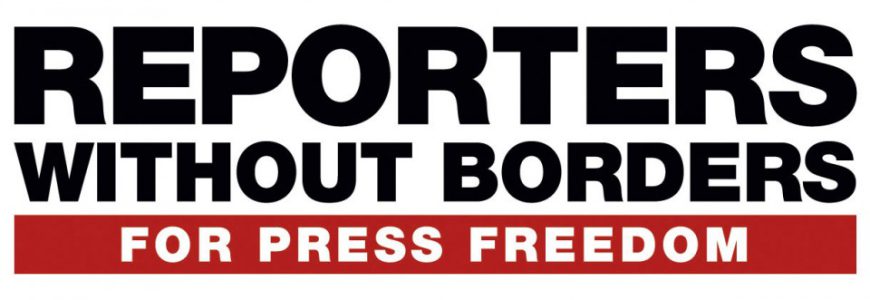In it, Azerbaijan ranks 154th out of 180 countries, between Belarus (153) and Russia (155) and only two places above Afghanistan (156). The other two countries in the South Caucasus, Georgia and Armenia are ranked 89th and 51th respectively.
The report mentions that virtually the entire media sector in Azerbaijan is under official government control since directors of media regulatory agencies, as well as the Federation of Journalists, are appointed by the government. Pro-government media often receive cash prizes and official subsidies and the government is not afraid to provide housing or other material benefits to journalists on their side.
While state television is the most popular source of information, there is no independent television or radio broadcasting within the country, and all critical newspapers have been shut down. Most independent news sites, such as Radio Liberty (RF/RL) and Meydan TV, which are targeted by state censorship, have settled abroad.
According to Reporters Without Borders, the Azerbaijani government is trying to suppress the latest non-independent media, as well as journalists who refuse to self-censor. This repression had severely limited reporters’ access to information.
The organization notes that media laws have become increasingly repressive over the past 20 years in Azerbaijan. Many laws governing the sector violate the country’s international obligations on freedom of the press and expression. In addition, any social media user who criticizes the government on platforms such as Facebook or YouTube runs the risk of facing severe penalties, from forged fines to imprisonment.
Gender issues are also part of the report, which draws attention to the fact that many women working in the media outside the capital, Baku, are unable to carry out their work freely.
Azerbaijan fails to persecute those who attempt against media workers: according to the report, no official or police officer has been punished for beating or insulting a journalist in the last 20 years.

